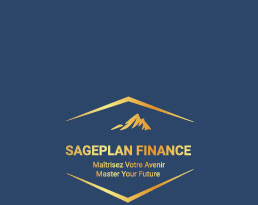Do any of these questions sound familiar to you?
-
- Can we retire soon, or how much longer do we have to work?
Determining when you can retire involves evaluating your current savings, anticipated expenses, and income sources. Start by calculating your retirement savings and projected expenses. Use tools like the Revenu Québec retirement calculator to get an estimate based on your specific circumstances.
-
- Should we collect Old Age Security (OAS) at age 65 or wait until a later age (and what does that mean, anyway)?
Old Age Security (OAS) benefits can start at age 65, but you can choose to defer them for up to five years. Delaying OAS increases your monthly benefits. Consider your health, life expectancy, and financial needs when making this decision.
-
- We have pensions, Social Security benefits, bank accounts, and retirement plans — what is the best way to provide our retirement income?
Creating a diversified income stream is crucial. Combine sources such as the Quebec Pension Plan (QPP), Registered Retirement Savings Plans (RRSPs), Tax-Free Savings Accounts (TFSAs), and other investments. A financial plan can help optimize your income strategy to balance stability and growth.
-
- Are we being too conservative or aggressive with our investments?
Your investment strategy should align with your risk tolerance, retirement timeline, and financial goals. Typically, a balanced approach with a mix of stocks, bonds, and other assets is recommended. Adjust your portfolio as you approach retirement to reduce risk and ensure a steady income.
-
- Should we pay off our mortgage so that we are debt-free heading into retirement?
Being debt-free in retirement is ideal, but it depends on your overall financial situation. If your mortgage interest rate is low and you’re earning higher returns on your investments, you might benefit more from investing extra funds rather than paying off your mortgage early.
-
- Why are we paying so much in taxes every year — is there anything we can do about it?
Tax planning is essential to minimize your tax burden. Take advantage of tax-advantaged accounts like RRSPs and TFSAs. Consider income-splitting strategies and ensure you’re claiming all eligible tax credits and deductions.
-
- We have several life insurance policies — do we still need to have them, or should we cash them in (or can we cash them in)?
Evaluate the purpose of your life insurance policies. If they no longer serve your financial needs, consider cashing them in or adjusting the coverage. Consult with a financial advisor to understand the tax implications and potential benefits.
-
- What about Long-Term Care insurance, do we really need that?
Long-term care insurance can provide financial security if you require extended care due to health issues. Assess your health, family history, and financial resources to decide if this insurance is necessary for your situation.
-
- We want to take care of our children and grandchildren — is there a best strategy?
Estate planning is crucial for ensuring your loved ones are taken care of. Consider setting up trusts, gifting strategies, or contributing to education savings plans like RESPs. Work with an estate planner to create a plan that meets your family’s needs.
-
- If we become unable to make decisions or pass away, what should we have in place?
Having a comprehensive estate plan is vital. This includes:
- Power of Attorney (Mandate in Case of Incapacity): Appoint someone to manage your financial and personal affairs if you become incapacitated.
- Living Will (Advance Medical Directive): Specify your wishes for medical treatment if you cannot communicate them yourself.
- Last Will and Testament: Ensure your assets are distributed according to your wishes and appoint a guardian for minor children.
- Trusts: Set up trusts to manage and protect assets for your beneficiaries, minimizing tax liabilities and ensuring smooth asset transfer.
- Life Insurance: Ensure your policies are up-to-date and reflect your current beneficiaries.
- Personalized Planning: DIY, Robo Advisors, and Professional Help
We acknowledge that some people are more comfortable with their own version of financial planning, whether through a true “do it yourself” mode or with a “Robo Advisor” type of experience. Personalized professional financial planning can offer tailored solutions to complex questions.
Mathematical projections can be made fairly easily to account for the 25 or 30 years of living in retirement, projecting income and expenses compared to assets and liabilities for the entire period using assumed rates of return and estimated life expectancy.
Conclusion:
Navigating retirement planning in Quebec involves addressing numerous questions and making informed decisions. Whether you prefer managing your finances independently or seeking professional advice, understanding these key aspects can help you secure a comfortable and financially stable future. Start planning today to ensure you make the most of your retirement years.


Leave a Reply